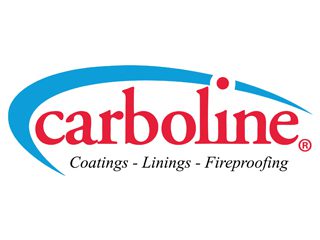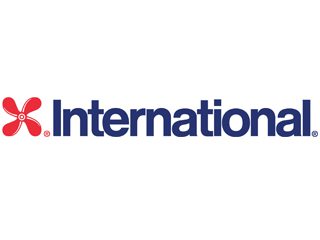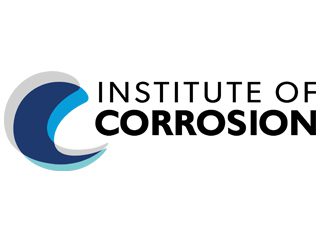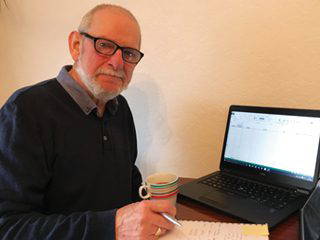
Institute News
The Institute is very pleased to welcome the latest Corporate Members, Carboline and International Paint Ltd.
Carboline produces high-quality performance coatings, linings and fireproofing products in more than 20 manufacturing facilities around the world. Carboline’s cutting-edge research and development centre reflects its commitment to remaining at the forefront of the protective coatings industry, which is why they are delighted to be associated with the Institute of Corrosion.
———————————————————————————–

AkzoNobel’s International® brand is the world leader in marine, yacht and protective coatings. A long-standing brand synonymous with innovation and collaboration, it is the preferred choice of industry leaders looking for excellence and expertise.
They deliver anticorrosive and fire protection, fouling control technologies and aesthetic solutions for on and offshore. Supported by high quality customer service and in-field support around the globe, their technologically advanced International® product range strives to satisfy their customers’ needs, now and in the future.

Institute News
As stated in the previous issue, the Institute of Corrosion (ICorr) is a charitable institution, dedicated to putting its members at the heart of the global corrosion prevention community and ensuring that all that is done in its name is aligned to its core values of:
• Competency and good leadership.
• Education and innovation.
• Inclusivity and diversity.
• Trust and respect.
• Worldwide participation.
As per the Charities Commission designation – Charity No. 275206, the principal aim of the Institute is to advance the understanding of the science, technology and engineering practice of corrosion control, and to facilitate the exchange of information and ideas for the public benefit. To assist in this goal, ICorr is very fortunate to have many volunteers serving its branches, divisions and committees. The organisational structure is the framework that enables this, and in which many talented and hard-working corrosion professionals help us to
achieve our goals.
The Trustees of the Institute of Corrosion
There are five trustees, and these form the ‘committee’ that oversees the routine running of the Institute between Council meetings. These trustees, who are also directors of ICorr, meet monthly and report back quarterly to Council, which is similar in operation to the Board of Directors of a large company. Neither the Trustees or Council members are paid. The Trustees presently are the following Institute members:
• The President – Dr Bill Hedges, (Appointed: 2019).
• The Vice President – Stephen Tate, (Appointed: 2020).
• The Immediate Past President –
Dr Gareth Hinds, (Appointed: 2016).
• The Honorary Secretary –
Dr Jane Lomas, (Appointed: 2011).
Records and provides continuity and guidance to the administrative proceedings of Trustees.
• The Honorary Treasurer – Dr Anthony (Tony) Collins, (Appointed:1994).
Advises and provides continuity and guidance to the financial proceedings of Trustees.
Becoming a Trustee
There are no defined qualifications to join a charity board, but the most important attribute is passion and willingness to give freely of one’s time, to help others.
Charity law gives trustees a legal responsibility for a given charity. To support this, trustees also have specific duties, which are set out by the Charity Commission and show how trustees should govern their charity and conduct themselves. The main duty of all trustees is to advance the purposes of their charity. This should always be a trustee’s main focus. A trustee must carry out their charity’s purposes for public benefit. This is called ‘the public benefit requirement.’
Trustees’ duties are set out in the Charity Commission guidance on the Essential Trustee (CC3). Reading and understanding this guidance is important for all trustees.
Term of Office
Being a Trustee is a long-term commitment, and in the case of ICorr is typically for a minimum period of 6 years, supporting the President in all key decision-making processes for matters requiring urgent attention. These may include, audits and standards, bursaries and sponsorships, charity commission returns, dispute resolution, growth and sustainability, long-term investments, and personnel changes and HR issues.
Recruitment and Appointment of Trustees
The directors of the Institute are also Trustees for the purposes of charity law and, under the Articles of Association, act as the Executive Management Committee.
Trustees, as members of the management committee, are required to have a broad skills base, and suitable persons (normally working in the field of corrosion) are drawn from industry, private consultancy and academia.
Vacancies are generally filled by approaching individuals who are thought to offer particular skills and/or who are able to maintain the balance of skills available to the management committee. Experience sitting on ICorr Council is obviously beneficial but is not a pre-requisite.
Responsibilities
There are many ongoing responsibilities during a Trustee’s term of office, the key ones being to ensure that:
• All resources are managed responsibly without waste.
• The Charity performs in the best interests of its members and the public at large.
• The Charity remains fully accountable and transparent.
• The operation of the Charity complies with the law, at all times.
• The Trustees act in the Charity’s best interests.
• Trustees act with good care and skill.
A risk register has been established and is updated at least annually and systems or procedures have been established to mitigate identified risks.
The Trustees are also responsible for safeguarding the assets of the charitable company and hence for taking reasonable steps for the prevention and detection of fraud and other irregularities. Each year, under the direction of the incumbent President, the Trustees produce an
annual report.
Under the Companies Act 2006, the Trustees are responsible for maintaining proper accounting records which disclose with reasonable accuracy at any time the financial position of the charitable company.
The Trustees are also required to prepare financial statements for each financial year which give a true and fair view of the state of the affairs of the charitable company as at the balance sheet date, and of its incoming resources and application of resources, including income and expenditure, for the financial year.
In preparing those financial statements, the management committee must follow best practice and:
1. Select suitable accounting policies and then apply them consistently.
2. Make judgements and estimates that are reasonable and prudent; and
3. Prepare the financial statements on a going concern basis.
Trustee Induction and Training
Most Trustees will already be familiar with the operation of the Institute from prior service in a local or regional branch, division or committee. However, after their appointment, new Trustees are given a brief familiarisation session by the current President that is intended to cover:
• Future plans and objectives of the Institute.
• Memorandum and Articles of Association of the Institute:
• Obligations on Trustees in law and as members of the management committee:
• The current financial position as set out in the latest published accounts.
The work of a Trustee is ongoing, sometimes complex but also varied. It is rewarding for the individual concerned, not in a monetary sense, but in knowing that they have helped secure the long-term future of the Institute.

Latest News
The Institute of Corrosion is very pleased to announce the successful election of Stephen Tate as its New President and Dr Yunnan Gao as its New Vice President.
Stephen has worked with Aberdeen Branch Committee for the past 11 yrs in various roles and has twice been its Branch Chair. Presently supporting the TOTAL Energies North Sea Operations though Oceaneering International, he has worked with many Integrity Vendors including AMEC, CAN (Offshore), MACAW, OIS and STORK over the last 23 yrs.
Before that he was an employee of ACEL (CP and Pipelines) for 16yrs and TRW Ferranti (Subsea) Systems for 2 yrs in Holland. He has wide practical experience of Corrosion Control activities in many Operational areas.
Stephen may be contacted at: president@icorr.org

President Handover on 10/11/22, Bill Hedges to Stephen Tate

Dr Yunnan Gao – New ICorr Vice President
Yunnan has been an active Aberdeen Branch Committee member for the last 8yrs. He has twice held the Chair position and has also acted as Vice Chair in support of Stephen Tate, helping to expand both the Branch membership and local Sponsorship. He has Extensive Energy experience both in the UK and Overseas.
Currently he is based at BP Sunbury UK but also supports the BP Aberdeen Operations. After his PhD studies, his employers have included Atkins, DNV GL, LR, Repsol Sinopec, Saipem and Stork, in the areas of Asset Integrity and Corrosion Management.
We wish them both success in their new roles for the Institute and believe that together they will make great Team, as ICorr continues to expand its Membership both in the UK and Overseas.
At this time, we would like to pay tribute to our retiring President Bill Hedges who has guided us through some very difficult times over the past 2 years, especially during the 1st year Covid when our Institute income was falling significantly. During that time, he has shown excellent governance and leadership throughout and has laid good foundations for us all.
Bill will be a very hard act to follow, but we will strive to build on the reforms he has put in place and continue his good work.
We thank him today, for all his support and guidance.
Institute News
Dear ICorr Member,
The Trustees and Council of the Institute would like to invite you all to the 2022 Annual General Meeting (AGM) to be held on Wednesday 9th November 2022 at the Council Chambers, Birmingham
Town Hall, in conjunction with a half day Midlands Branch meeting, including technical presentations by corrosion experts from across Europe.
The Midlands Branch meeting, and the AGM will be an in-person event only.
11.00 -12.00 Arrive; registration and networking, tea and coffee served
12.00 -13.00 Lunch
13.00 -14.15 ICorr Award winners talks:
*Alison Davenport – Pitting: the delicate balance between dissolution and passivation.
*Chris Lynch – Cathodic Protective Standards Making
14.15 -14.30 Comfort break
14.30 – 16.30 Midlands Branch Symposium Speakers:
*Chris Googan – Why do Protective Coatings Fail?
*Simon Daly – Challenges for Selecting Coatings for the fixed and floating offshore wind industry.
*Malcolm Morris – Update on International Standards Activity Within the Protective Coatings Sector.
*Ken Lax – BS EN ISO 21857:2021 Prevention of corrosion on pipeline systems influenced by stray currents.
16.30 -17.00 Comfort break tea coffee
17.00 -17.45 ICorr AGM
Institute of Corrosion Annual General Meeting 2022
Venue: Council Chamber, Birmingham Town Hall.
Time: 17.00 – 17.45
Agenda.
1. Apologies for Absence.
2. Minutes of the Previous AGM (2021).
3. President’s Report.
4. Treasurer ’s Report.
5. Elections of Trustees and Council Members.
6. Any Other Business.
The Trustees and members of Council will be available before the meeting to answer any questions you may have regarding the Institute and its future.
Again, as in the case of 2021, the Institute’s accounts, and the minutes for the 2021 AGM, will be available via the ICorr website (www.icorr.org). Please examine them and the website in general as we would appreciate your feedback. The website will continue to be influential in increasing the Professional Membership and for informing non-members about ICorr, as well as a major means of communication with membership.
Please confirm attendance (for lunch numbers) or apology for absence by e-mail to admin@icorr.org
Members should check the ICorr website for any update to the arrangements before travelling.
We look forward to seeing you there.
Yours faithfully,
Dr Jane Lomas, Institute of Corrosion Honorary Secretary

Institute News
Welcome to the autumn issue of your magazine, and it is another bumper issue. There is an extensive Institute News section, with information on the upcoming AGM and details of a new training course. There are the usual Fellow’s Corner and Ask the Expert columns, but slightly shorter than normal to make way for the three technical articles. These cover improving the life of anodes, bottom plate corrosion of above ground storage tanks, and a very interesting look at the effect of climate change on carrion from Chris Atkins.
As you will have seen from the “President Write” column above, I have decided to stand down as editor, so this should be my penultimate issue. After being editor for 6 years, and working in the industry for more than 50 years, it’s time for me to relax and enjoy retirement.
It has been a pleasure to produce the magazine, and I hope you have enjoyed reading it.
Brian Goldie, Consulting Editor
Email: brianpce@aol.com
![]()


